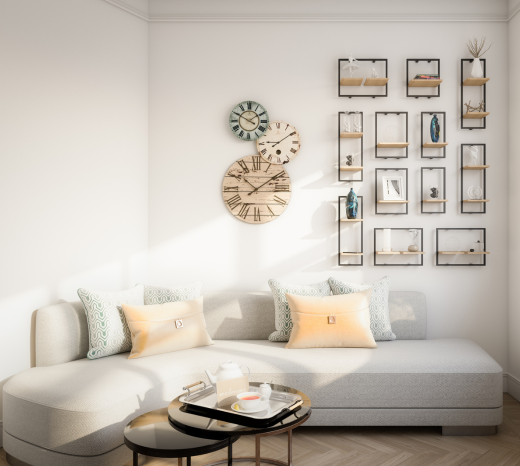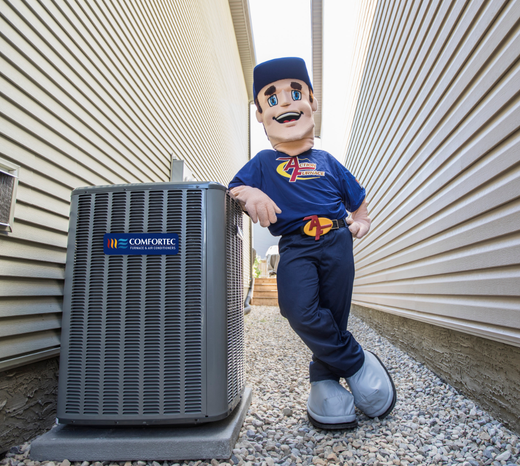Humidity is one of those things that's hard to get just right in Alberta. Constantly changing temperatures and our frigid winters can leave you feel...
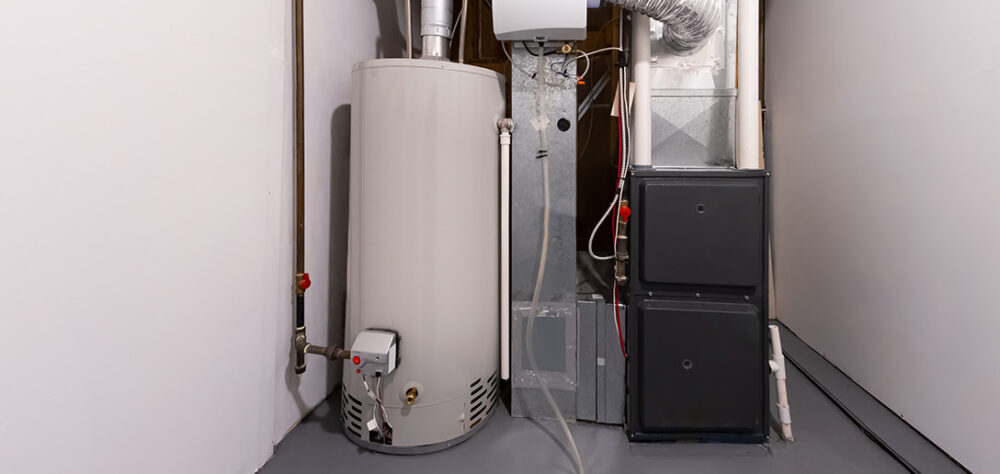
Humidity is one of those things that's hard to get just right in Alberta. Constantly changing temperatures and our frigid winters can leave you feeling dry. But being the most comfortable inside your home can be accomplished with a whole-home humidifier.
Proper humidity does more than just make you feel comfortable. There are legitimate health benefits and positive side effects for the rest of your home. If your air supply isn’t at ideal humidity throughout the year, it might be time for an upgrade.
Humidifier installations are one of the many ways that Action Furnace can improve your comfort levels at home. Most whole-home humidifiers can be installed right into your existing heating and cooling system.
Let’s discuss what humidity level is the safest and why it's important to maintain. And remember you can always call 24/7 for information on the types of humidifiers that will work best with your home’s HVAC system.
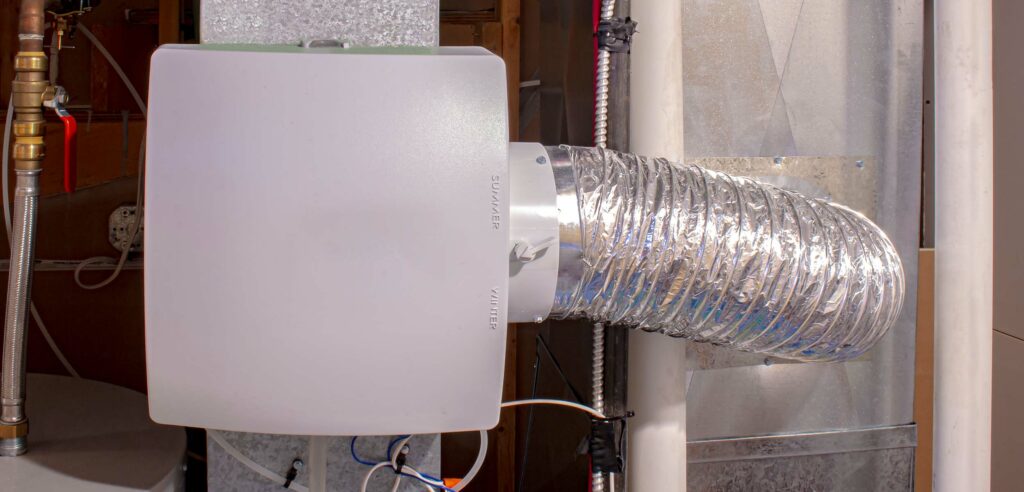
What Should Indoor Humidity Be?
Health Canada recommends that the humidity level for your home should be between 30-50%. This percentage represents the relative humidity of the air inside your home. This will keep you comfortable and safe from the side effects of low humidity, like dry skin and bloody noses.
Maintaining proper humidity is especially important during the winter when furnace use can suck the moisture right out of the air. A whole-home humidifier can add the necessary moisture to make sure your family stays healthy all winter long.
Humidity in Alberta
The average humidity levels in Alberta vary depending on the season. In the winter, the average humidity level can casually drop below 30%. In the summer, average humidity levels are higher. This is because when it’s hot out, the air can hold higher levels of moisture.
Air conditioners can also make the air in your home dry. This is because they remove moisture from the air to cool it down. Unfortunately, the extreme temperature swings in Alberta can mean that you’re using your furnace or air conditioner all year long.
The best way to mitigate the dry climate in Alberta? A whole-home humidifier that keeps your entire home moisture-friendly without having to turn individual units on or off as the weather changes.
What Are the Benefits of Proper Humidity?
Along with clean furnace filters and air purifiers, humidifiers contribute to better indoor air quality (IAQ). you're going to feel more comfortable and relaxed when air moisture levels are where they should be. But the benefits of proper humidity go deeper than just feeling good.
Health Benefits of Proper Humidity
Maintaining proper humidity levels in your home has a number of health benefits. In the winter, when the furnace is running and the air is dry, a whole-home humidifier can add the necessary moisture to make sure your family stays healthy.
Some of the health benefits of proper humidity levels include:
- Reduced risk of respiratory infection
- Reduced chance of developing asthma or allergies
- Less irritation to the nose, throat & lungs
- Relief from symptoms of dry skin, cracked lips, bloody noses, sinus congestion, & itchy eyes
- Improved breathing during sleep
How Ideal Humidity Kills Viruses
Maintaining ideal humidity levels in your home can help kill viruses and bacteria. When relative humidity is too high, it can lead to increased bacterial growth. Humidity that drops below 30% is more hospitable for airborne viruses, like the flu.
There's a reason hospitals are kept at a constant humidity—it's one of the best ways to keep viruses from spreading. The ideal humidity level for a home is around 30-50%. Any lower than that and you may start to see problems with your health. Dry air can cause skin problems, respiratory issues, and even increase your susceptibility to catching a cold or the flu.
If you’re feeling the symptoms of low humidity, it’s a sign you may be vulnerable to airborne particles that can make you sick. An HVAC specialist from Action Furnace can measure your home’s humidity levels and help you make a decision about the best in-home humidifier for your space.
Household Benefits of Ideal Humidity
In addition to the health value, there are several household benefits of maintaining proper humidity levels. Environments with humidity that falls between 30-50% are better for virtually any material. Some of the benefits of a home with proper air moisture are:
- Prevents hardwood floors from warping, separating, and splitting
- Keeps wood furniture from shrinking, warping, and cracking
- Extended life of furniture, carpets and other household items
- Reduction of silver tarnishing
- Reduced chance of developing wood rot and other damage to your home's wooden structures
- Lowers the risk of mould and mildew growth
- Reduces static electricity in the air
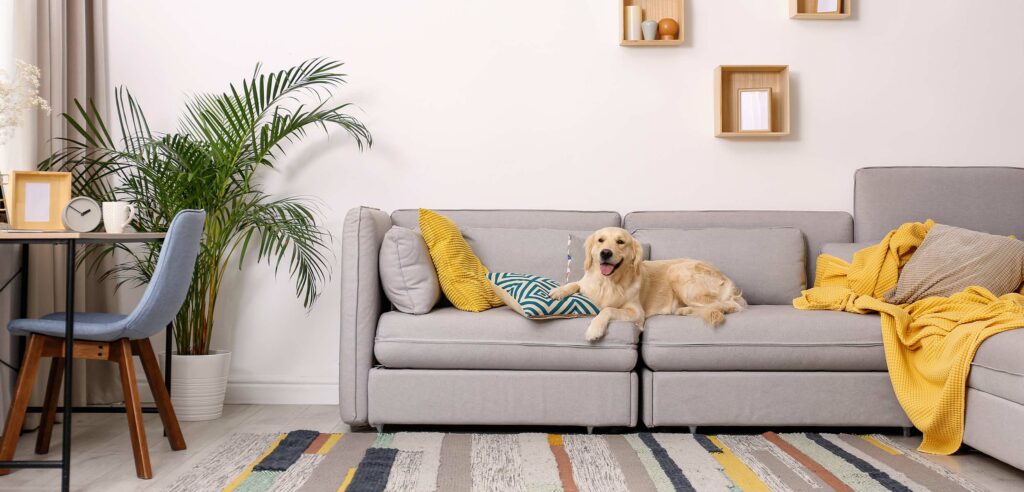
How Does a Whole-Home Humidifier Work?
A whole-home humidifier is a furnace humidifier that is installed in your furnace system. It adds moisture to the air in your home to maintain proper humidity levels. There are several different types of whole-home humidifiers, but all of them work by adding moisture to the air as it passes through the furnace system.
See also: How Does a Humidifier Help The Quality of Your Home
This means that all the air being delivered throughout your home is calibrated with your desired level of humidity. If you're keeping doors and windows closed, you can expect to feel comfortable in every part of the house.
Maintenance for a whole-home humidifier is generally low. An annual whole-home humidifier tune-up should be all you need to upkeep a healthy home comfort system.
Understanding Steam Humidifiers
There are two types of furnace humidifiers: steam humidifiers and bypass humidifiers. Steam humidifiers work by heating water until it turns to steam. The steam is then released into the furnace system where it mixes with the air. Bypass humidifiers work by drawing moisture from the air and then releasing it into the furnace system.
Both types of furnace humidifiers are effective in adding moisture to the air in your home. But steam humidifiers are more efficient, albeit with higher installation costs. Steam humidifiers are a great choice for people who want proper humidity levels in larger homes because they are very effective at adding moisture to the air.
Call our HVAC specialists for consultation and recommendations on the type of whole-home humidifier that’s best for your home and IAQ needs
Stay Humid, Stay Happy
If you’re waking up with a dry throat or chapped lips, it’s time for a whole-home humidifier. If you’re noticing artwork and furniture warping and twisting, it’s time to install a humidifier.
Whole-home humidifiers can positively affect all of the air you breathe inside your home and while you sleep. And there really is no drawback to adding moisture to your home’s air because maximum humidity can be calibrated. So why not invest in an improved quality of life?
All Albertans face the challenge of managing a dry climate. But keeping the air inside your home humid and comfortable is one way you can fight back! Let our HVAC experts assess your home’s indoor air quality and help you find a humidifier that fits your needs and your budget. Call us today to transform your living space into a happy and humid home.

